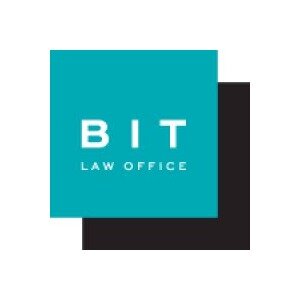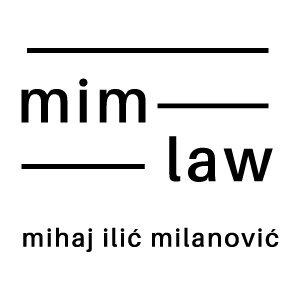Best Criminal Defense Lawyers in Serbia
Share your needs with us, get contacted by law firms.
Free. Takes 2 min.
Or refine your search by selecting a city:
List of the best lawyers in Serbia
About Criminal Defense Law in Serbia
Criminal Defense law in Serbia encompasses a set of legal protections afforded to individuals accused of committing crimes. The legal system is structured around the principle of the presumption of innocence until proven guilty, and it aims to ensure a fair trial for all accused individuals. The Criminal Code of Serbia is the primary statute that defines criminal acts and prescribes corresponding penalties. Matters of criminal defense are adjudicated in courts throughout the country, where defendants have the right to legal representation to ensure their rights are safeguarded throughout the legal process.
Why You May Need a Lawyer
There are numerous situations where you might need a criminal defense lawyer in Serbia. If you are accused of a crime, whether a misdemeanor or felony, securing legal counsel is crucial. A lawyer can help navigate the complexities of the legal system, including pre-trial processes, plea negotiations, and trial proceedings. Additionally, if you are a victim of wrongful accusation or if your rights have been violated by law enforcement, it is vital to engage an experienced attorney. Other common scenarios include facing charges such as theft, assault, fraud, or drug-related offenses.
Local Laws Overview
Serbian criminal law is codified primarily in the Criminal Code, which outlines various offenses and penalties. Notable aspects of criminal defense include:
- Presumption of Innocence: The accused is considered innocent until proven guilty by a competent court.
- Right to Defense: Defendants have the right to a lawyer and can have legal representation provided if they cannot afford one themselves.
- Custody and Detention: Conditions under which an individual may be detained pre-trial are strictly regulated.
- Trial Procedures: Serbian law mandates a fair and public trial, with the right to appeal verdicts.
- Plea Bargaining: Defendants may negotiate plea deals under specific conditions, potentially lowering sentences.
Frequently Asked Questions
What is the role of a criminal defense lawyer?
A criminal defense lawyer provides legal representation to the accused, advocates for their rights, and navigates them through the legal process.
What should I do if I am arrested?
If arrested, it is crucial to remain calm, invoke your right to remain silent, and request a lawyer as soon as possible.
Can I represent myself in court?
Yes, you can represent yourself; however, it is not advisable due to the complexities of criminal law and legal procedures.
What are my rights during an interrogation?
You have the right to remain silent and not self-incriminate. You can also request an attorney to be present during questioning.
What is the presumption of innocence?
The presumption of innocence is a legal principle ensuring that one is considered innocent until proven guilty by a court of law.
How long can the police detain me without charging me?
The law allows police to detain individuals for a maximum of 48 hours without a formal charge.
What happens if I cannot afford a lawyer?
Should you be unable to afford legal representation, the court will appoint a public defender to your case.
Can a lawyer help reduce my sentence?
A lawyer can assist by negotiating plea deals, presenting mitigating evidence, and advocating for reduced sentencing.
What should I do if I feel my rights have been violated?
Contact a criminal defense lawyer to discuss your situation and explore legal remedies to ensure your rights are protected.
How can I appeal a conviction?
You must file a formal appeal with the appropriate appellate court, adhering to legal timeframes and procedures.
Additional Resources
For further assistance, consider reaching out to the following resources:
- Serbian Ministry of Justice: Offers a wealth of information regarding legal processes and rights.
- The Serbian Bar Association: Provides resources to locate qualified legal professionals.
- Human Rights Organizations: Offer guidance and help in cases involving potential rights violations.
Next Steps
If you find yourself in need of legal assistance in Serbia, it is imperative first to assess your situation and seek the guidance of a qualified criminal defense lawyer. Collect all relevant documentation and evidence relating to your case. Schedule a consultation to discuss your case with an attorney. If necessary, explore legal aid options. Stay informed of your rights and actively participate in your defense strategy for the best possible outcome.
Lawzana helps you find the best lawyers and law firms in Serbia through a curated and pre-screened list of qualified legal professionals. Our platform offers rankings and detailed profiles of attorneys and law firms, allowing you to compare based on practice areas, including Criminal Defense, experience, and client feedback.
Each profile includes a description of the firm's areas of practice, client reviews, team members and partners, year of establishment, spoken languages, office locations, contact information, social media presence, and any published articles or resources. Most firms on our platform speak English and are experienced in both local and international legal matters.
Get a quote from top-rated law firms in Serbia — quickly, securely, and without unnecessary hassle.
Disclaimer:
The information provided on this page is for general informational purposes only and does not constitute legal advice. While we strive to ensure the accuracy and relevance of the content, legal information may change over time, and interpretations of the law can vary. You should always consult with a qualified legal professional for advice specific to your situation.
We disclaim all liability for actions taken or not taken based on the content of this page. If you believe any information is incorrect or outdated, please contact us, and we will review and update it where appropriate.
Browse criminal defense law firms by service in Serbia
Serbia Attorneys in related practice areas.
Browse criminal defense law firms by city in Serbia
Refine your search by selecting a city.

















